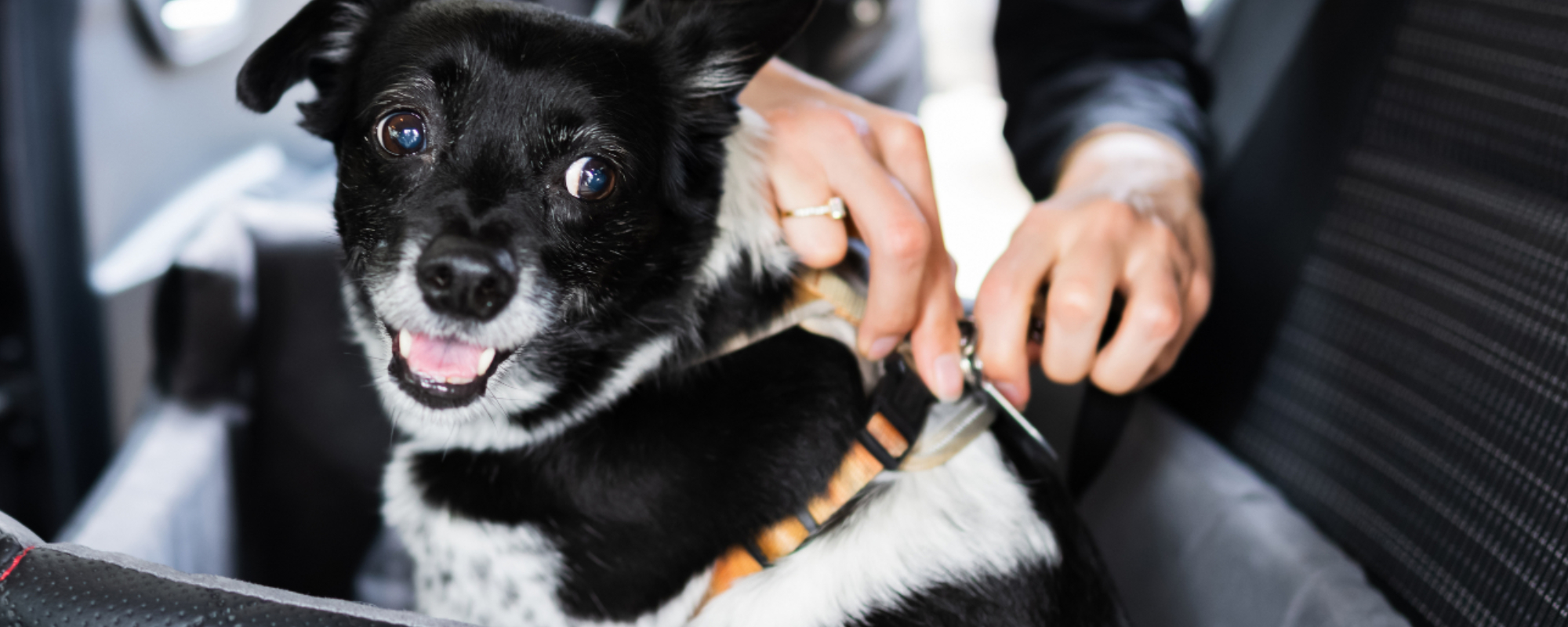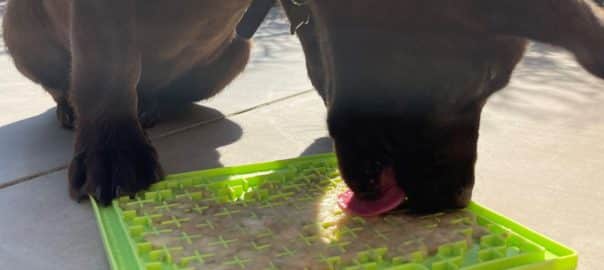If you’re navigating the winding roads of pet travel safety in the UK, you might be wondering: do I need to buy a car harness, travel crate, or dog guard? Understanding the best option for your furry companion can seem like a maze at first.
Each choice offers its own benefits and considerations to ensure your pet’s security during car rides. These products are carefully designed to provide safety, comfort, and compatibility with various vehicle types. Let’s explore the ins and outs of car harnesses, travel crates, and dog guards to help you make an informed decision that suits both your pet’s needs and your peace of mind.
Key takeaways
- Prioritise pet safety and legal requirements in the UK by using car harnesses, travel crates, or dog guards to restrain pets in vehicles.
- Consider pet comfort and anxiety levels by identifying triggers, addressing negative experiences, and ensuring physical comfort during travels.
- Choose the right restraint based on vehicle size, level of protection desired, and what makes pets feel secure and at ease.
- Select a properly fitting and crash-tested harness, crate, or dog guard that ensures a secure fit, allows for movement while ensuring security, and regularly check its condition to align with the dog’s preferences and comfort needs.
Types of pet restraints available
You can choose from car harnesses, travel crates, or dog guards as types of pet restraints available for your cars in the UK. Car harnesses are designed to secure your pet safely in one spot while you drive. They’re easy to use and come in various sizes to fit your furry friend comfortably.
Travel crates provide a confined space for your pet during car journeys, offering a sense of security and preventing distractions. They’re especially useful for larger dogs or pets that tend to get anxious in new environments.
Dog guards are ideal for keeping your pet in the back area of your vehicle, creating a barrier between them and the front seats. This type of restraint is beneficial for larger vehicles like SUVs or estates.
Each option has its advantages, so consider your pet’s size, behaviour, and comfort when selecting the right pet restraint for your travels in the UK.
Safety regulations in the UK
Ensure compliance with safety regulations in the UK when selecting a pet restraint for your vehicle. It's crucial to prioritise your pet's safety and adhere to legal requirements. Here are some key points to consider:
- Legal consequences: Failure to comply with safety regulations can result in fines or penalties, and most importantly, it puts your beloved pet at risk.
- Peace of mind: Knowing that you have chosen a pet restraint that meets UK safety standards can give you peace of mind during car journeys, allowing you to focus on enjoying the ride with your furry companion.
- Responsible ownership: By following safety regulations, you demonstrate responsible pet ownership and show that you prioritise the well-being of your pet above all else.
Pros and cons of car harnesses
When considering car harnesses for your pet in the UK, why opt for this type of restraint over others? Car harnesses provide a secure and designated space for your pet during car journeys, preventing them from moving around the vehicle freely.
This restriction can be crucial for your pet’s safety, as sudden stops or accidents could lead to injuries if they aren’t properly restrained. Car harnesses are also relatively easy to use; you can simply attach them to your pet’s collar or harness and then to the car’s seatbelt, ensuring easy access to the car's rear seats.
However, there are some drawbacks to consider when using car harnesses. While they can prevent your pet from roaming the car, they may not provide as much comfort as other options like travel crates. Some pets may not enjoy wearing a harness or may find it restrictive, causing them stress during car rides.
Transitioning into the subsequent section about the benefits of travel crates, let’s explore how this alternative can provide additional comfort and security for your pet during travels.
Benefits of travel crates
Consider opting for a travel crate as it can provide your pet with additional comfort and security during car journeys. Travel crates offer numerous benefits that can make your furry friend feel safe and content while on the road:
- Safety: A sturdy travel crate keeps your pet secure and prevents them from roaming around the car, reducing the risk of accidents and distractions.
- Comfort: The enclosed space of a travel crate can act as a cosy den for your pet, offering a sense of security and familiarity during travel.
- Reduced anxiety: Many pets find solace in the enclosed space of a crate, which can help reduce stress and anxiety associated with car rides.
Considerations for dog guards
For optimal safety, assess the size of your car and your dog before selecting a dog guard. Dog guards are essential for keeping your pet secure while on the road. Consider the following factors when choosing a dog guard:
| Consideration | Description |
| Size compatibility | Ensure the dog guard provides a perfect fit for your car seat model and can be adjusted to accommodate your dog’s size. |
| Material | Choose a sturdy material like steel or aluminium for durability and strength. |
| Ease of installation | Opt for a dog guard that offers easy access and is easy to install and remove for convenience. |
| Visibility | Select a dog guard with good visibility to allow your dog to see you and reduce anxiety. |
| Cleaning and maintenance | Look for a dog guard that is easy to clean to maintain hygiene for your pet. |
Factors to determine your needs
To determine your needs for car safety equipment for your dog in the UK, start by evaluating the size of your vehicle and your pet. Consider the following factors:
- Size matters: The size of your vehicle will dictate the space available for your dog's safety equipment. A smaller car may benefit more from a harness, while a larger vehicle could accommodate a travel crate or dog guard effectively.
- Safety first: Think about the level of protection you want for your furry friend. A travel crate offers enclosed safety, a harness provides restraint, and a dog guard creates a barrier between your pet and the rest of the car.
- Comfort counts: Your pet's comfort during travel is crucial. Reflect on what would make your dog feel secure and at ease during car journeys. A cosy crate, a secure harness, or the freedom of movement behind a dog guard can all impact your pet's travel experience.
Making the right choice
When deciding between a car harness and a travel crate for your dog in the UK, consider safety as a top priority. Understanding the legal requirements in the UK regarding pet transportation will guide your decision-making process. Factor in your pet's comfort and stress levels to make the right choice for your furry companion.
Safety first: Harness vs. Crate
Consider your dog's size and behaviour when deciding between a harness and crate for car travel safety.
Harness
- Allows more freedom of movement for your pup
- May be suitable for dogs who are comfortable being restrained
- Provides a sense of closeness during the journey
Crate
- Offers a cosy and secure space for your dog
- Ideal for pups who tend to get anxious or overly excited in the car
- Helps prevent distractions while driving
Ensuring your furry friend's comfort and safety is paramount when choosing between a harness and crate for car journeys. Now, let's delve into the legal requirements in the UK.
Legal requirements in UK
If you plan to drive with your dog in the UK, understanding the legal requirements for car restraints is crucial. The law states that dogs must be suitably restrained while in a vehicle to prevent distractions to the driver and ensure the safety of the dog and other passengers.
Failure to comply with these regulations can result in fines and penalties. In the UK, the highway code recommends the use of car harnesses, travel crates, or dog guards to secure your pet during car journeys. It’s important to choose a restraint that’s suitable for your dog’s size and behaviour to ensure their safety and compliance with the law.
For customers using the commercial website, UK VAT applies to all purchases, ensuring compliance with Value Added Tax regulations.
Pet comfort and stress
To ensure your dog's comfort and reduce stress while travelling, prioritise selecting the appropriate car restraint that suits their needs:
- Consider your dog's anxiety levels during car rides
- Address any previous negative experiences your dog may have had in the car
- Think about your dog's physical comfort
- Ensure the chosen restraint allows for movement while also keeping them secure
- Take into account your dog's preferences and habits
- Choose a restraint that aligns with how your dog typically behaves during travel
Conclusion
In conclusion, whether you choose a car harness, travel crate, or dog guard in the UK, safety is key. Consider your pet's comfort and the level of restraint needed for a smooth ride. Evaluate the pros and cons of each option, weigh the benefits, and factor in your specific needs.
By making an informed decision, you can ensure a safe and enjoyable journey for both you and your furry companion. To further safeguard your pet's well-being, consider Purely Pet's dog insurance. Their comprehensive dog insurance lifetime cover offers peace of mind and travel protection - covering unexpected medical emergencies, accidents and treatment.
Frequently asked questions
Are there any specific weight or size restrictions for using car harnesses, travel crates, or dog guards in the UK?
When using car harnesses, travel crates, or dog guards in the UK, specific weight or size restrictions may apply. It's essential to check guidelines to ensure the safety of your furry friend while travelling.
Can car harnesses, travel crates, or dog guards be used for other types of pets besides dogs?
Car harnesses, travel crates, and dog guards are specifically designed for dogs due to their unique size, behaviour, and safety needs in vehicles. These products may not provide the same level of protection for other types of pets.
Are there any particular brands or models that are recommended for their safety and durability?
When it comes to safety and durability in car harnesses, travel crates, or dog guards, some recommended brands and models are Sleepypod, Kurgo, and Ruffwear. Prioritise your pet's well-being with these top choices.
Do car harnesses, travel crates, or dog guards need to be regularly inspected or replaced over time?
Regularly inspect and replace your car harness, travel crate, or dog guard to ensure ongoing safety for your furry companion. Over time, wear and tear can compromise their effectiveness, so stay vigilant and prioritise their maintenance.
Are there any additional accessories or features that can enhance the effectiveness of these pet restraints while travelling?
Enhance your pet's travel safety with accessories like seatbelt attachments for harnesses, cosy padding for crates, or adjustable extensions for dog guards. These extras can make the journey comfier and more secure for your furry friend.



